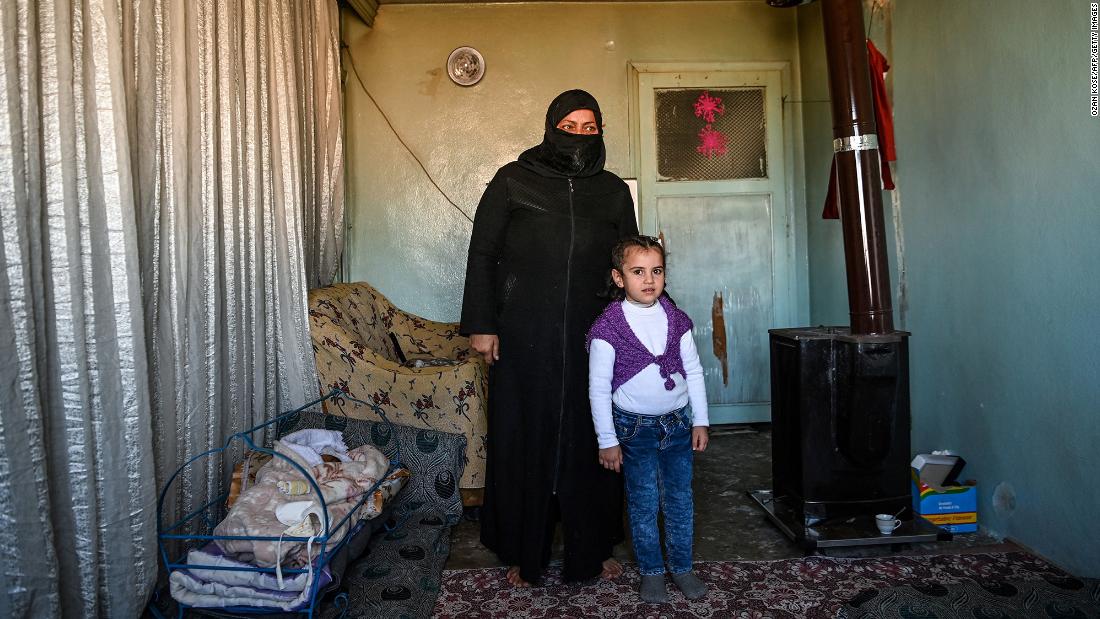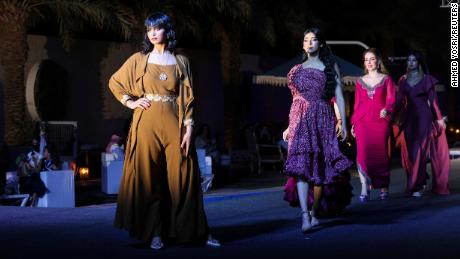“There isn’t a precondition for dialogue [with Syria],” Foreign Minister Mevlut Cavusoglu said in an interview last week. “What matters more is the aim and target of that dialogue,” he told Turkish broadcaster Haber Global.
Cavusoglu made his comments just days after Turkish President Recep Tayyip Erdogan told reporters that “diplomacy can never be cut off” with Damascus, and that Ankara needs to “secure further steps with Syria.” Ankara’s goal, he added, was not to defeat Syrian President Bashar Al Assad.
This softening of Ankara’s position also comes as several Arab states turn the page on Syria’s war and welcome Assad back into the regional fold.
Conciliatory statements by Turkish officials are however a calculated move directed at the domestic audience ahead of elections next year, Asli Aydintasbas, senior fellow at the European Council on Foreign Relations, told CNN.
“We are heading into elections, [Erdogan’s] numbers are looking very uncertain and the refugee issue seems to be one of the top concerns for Turkish voters across the political spectrum, including his own base,” she said.
“Refugees are the scapegoat,” Aydintasbas said. “There’s no economic or even real reason for this, but people, when [they’re] unemployed, when [they see] their purchasing power decline, find refugees as a convenient scapegoat.”
Observers and rights groups say Turkey is unlikely to send Syrians back to their country if it’s unsafe for them, due to international treaties protecting the rights of refugees. But they expect this will continue to be used as a tool to rally support by all parties ahead of next year’s vote.
“This whole notion of starting a political dialogue is intended to reassure voters that the government is doing something, [and] has plans for the repatriation of Syrians, even though this is unlikely to happen,” Aydintasbas said.
Despite reassurances from the Turkish government that there will be no forced returns, many Syrians in Turkey fear they will be made to go back. Those in opposition-controlled regions of Syria fear their areas will be handed back to Syrian government forces.
Both the ruling party and the opposition in Ankara have suggested that normalization with the Assad regime is necessary to deal with Turkey’s refugee issue.
When the Turkish foreign minister first hinted at reconciliation earlier this month and revealed he had a brief encounter with his Syrian counterpart on the sidelines of a conference last year, it sparked outrage in the last remaining part of rebel-held Syria.
A Syrian in Istanbul described the fear in his community amid the uncertainty. He spoke to CNN on the condition of anonymity because of his own precarious status in both countries.
“[Erdogan] wants to win the election and we will pay the price,” he said. “If Erdogan wins, they probably would not send us back without guarantees, but if the opposition wins they will probably open the gates and send us all back. We will need to look at going to other countries.”
Gestures toward the Syrian regime would likely be part of Erdogan’s election pledge, said Aydintasbas. “It’s highly unlikely for this to move forward, other than pleasantries between Turkey and Damascus.”
CNN’s Isil Sariyuce and Celine Al-Khaldi contributed to this article.
The digest
Iraq’s powerful cleric Sadr says he is quitting politics
- Background: Considered the kingmaker of Iraqi politics, Sadr withdrew his lawmakers from parliament in June after he failed to form a government of his choosing. A political impasse between him and Iran-backed Shiite rivals has given Iraq its longest run without a government.
- Why it matters: Sadr’s supporters have since the end of July occupied parliament and protested near government buildings, halting the process to choose a new president and prime minister. The announcement raised fears that they may escalate their protests, fueling a new phase of instability.
Iran reiterates closure of UN probe as demand to revive nuclear deal
Iranian President Ebrahim Raisi said that “there is no point in a nuclear agreement” if an International Atomic Energy Agency investigation into unexplained uranium traces at Iranian sites is not settled.
- Background: Iran has demanded the closure of a probe by the UN’s nuclear watchdog into uranium traces found at undeclared research sites before it agrees to fully implement a proposal to revive the 2015 nuclear pact that was abandoned by the Trump administration.
- Why it matters: The probe is the only major sticking point in the talks and risks prolonging an already protracted effort to come to an agreement. Iran has dropped some demands, including the de-listing of the Islamic Revolutionary Guard Corps (IRGC) as a foreign terrorist organization, a senior US official told CNN earlier this month.
Turkish pop star to be moved to house arrest after detention sparked outrage
A Turkish court ruled that pop star Gulsen should now be placed under house arrest, state-run news agency Anadolu reported on Monday, after the singer’s formal arrest four days ago over a joke about religious schools sparked outrage.
- Background: Gulsen was jailed pending trial on Thursday on a charge of incitement to hatred, after a video of her comments from four months ago surfaced on a website of a pro-government newspaper, Sabah, a day earlier. Several ministers condemned her comments on Twitter. She denied the charge, and apologized to those offended by her remarks.
- Why it matters: Thousands took to social media in support of Gulsen, saying she was targeted for her support for LGBT+ rights and liberal views that go against those held by Erdogan’s Islamist-rooted AK Party.
Tweet of the day
A video showing a Turkish sports commentator getting slapped by a cat on live TV has gone viral in the country.
Huseyin Ozkok was discussing football live on the A Spor channel on Saturday when a cat appeared behind him and slapped him on the face.
“You have a little guest it seems? Did you bring your cat?” the anchor laughed.
Ozkok replied that he was a guest at the cat’s house.
He later shared a picture of the cat. “Here’s Oli, our little hot-headed friend who hit me with a right-hook on air,” he tweeted. “When he was tiny and about to die, he was found in a dumpster and brought back to life. Let’s take care of the animals. Let’s not call bad people animals.”



